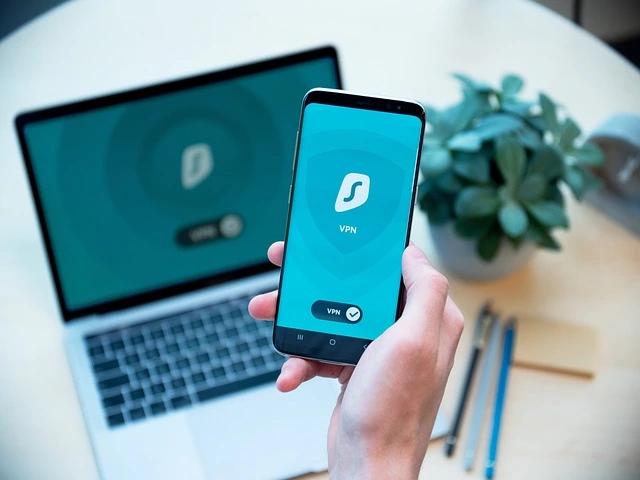How Virtual Private Networks (VPNs) Can Secure Your Tax Filing Process
Tax time can be very stressful. With time limits, paperwork, and math to do, the last thing you need is concern about your security. As we use more online tax systems, keeping our personal and money details safe is very important. Enter the Virtual Private Network (VPN): your main protection from online dangers and an important thing for safe tax filing.
Understanding VPNs: Your Tunnel to Security
Using a VPN makes your internet activities safe by encrypting them. It creates an unbreakable path between your gadget and the web. Picture it as a hidden road, hiding your information from curious people and bad actors. This encryption plays a crucial role in safeguarding your:
- Social Security Number: The main treasure of your data, shown during tax filing. A VPN keeps it safe from being caught by hackers or people who spy.
- Tax Returns: Sensitive documents containing financial details. A VPN makes sure messages get to the right person safely, stopping unauthorized people from seeing them.
- Banking Information: Essential for paying taxes or getting refunds. A VPN keeps your bank information safe from possible phishing attacks or data leaks.
Enhanced Security: Your Fortress Against Cyberattacks
With a VPN, you can breathe easier knowing you’re protected against:
- Man-in-the-Middle Attacks: Bad people who steal your information from between the device you use and the tax platform. A VPN makes their efforts pointless.
- Identity Theft: People who take your private details for money. A VPN hides your online actions, making it more difficult for them to follow you.
- Unauthorized Access: People who try to get into your computer or listen in on what you do online. A VPN works like a safe wall, protecting your information.
Protecting Your Privacy: A Shield from Unwanted Eyes
Beyond security, a VPN offers valuable privacy benefits:
- Hiding Your Location: A VPN hides your IP address, making it hard for anyone to find out what you’re doing online or know where you are.
- Bypassing Geo-Restrictions: Some services or tax software might be limited to a certain area. A VPN helps you get past those limits and use them safely.
- Preventing Data Monitoring: People who work for governments or others might try to watch what you do on the internet. A VPN keeps your tax activities private and hidden.
Public Wi-Fi Security: A Lifeline in Unsecured Territories
Wireless networks that anyone can use are well-known for not being very safe. Using a VPN while accessing tax-related services on these networks adds a crucial layer of protection:
- Shielding Your Data: Public Wi-Fi can be a place for bad people who hack. A VPN makes your data safe by locking it up so that if anyone gets their hands on it, they can’t use it.
- Preventing Eavesdropping: A VPN keeps your tax talk safe when using networks that are not secure.
- Securing Your Mobile Device: People are starting to like mobile tax filing more and more. Using a VPN keeps your data safe when you use tax apps or websites on your phone.
Choosing the Right VPN: Your Trusted Security Partner
Not all VPNs are the same. When selecting one for tax filing, prioritize:
- Strong Encryption Protocols: Search for AES-256 encryption or more to have the best protection of your data.
- Server Locations: Pick a company that has servers near you to get the best speed and safety.
- Privacy Policy: Pick one that has strong no-logs rules to make sure your information stays secret.
- Trust and Reputation: Pick a good VPN company with proof of safety and dependability.
Securing Mobile Tax Filing: Safety on the Go
It’s easy to use mobile tax filing, but you should keep your data safe when moving around. Always use a VPN when going online to tax services or sites on your cell phone or tablet. This makes sure your important data stays locked and safe, even on shared WiFi or phone networks.
VPN Best Practices: Your Comprehensive Security Strategy
Combine your VPN with these best practices for maximum tax season security:
- Enable Automatic Updates: Make sure to stay up-to-date with the latest safety fixes for your VPN and computer system.
- Use Multi-Factor Authentication: Use two-factor authentication for extra safety whenever you can.
- Choose Strong Passwords: Stay away from easy words and choose hard groupings of letters, numbers, and signs for your password.
- Be Wary of Phishing Scams: Always avoid tapping on shady links or files in emails, particularly those claiming to be from tax offices.
By learning about VPNs, picking the best one for you, and following these tips well, you can be sure in tax time that your information is safeguarded with no need to worry. Your privacy will always stay out of reach of others. Remember, a VPN is your online protector against fake dangers. This lets you concentrate on finishing tax forms correctly and fast without worrying about security issues.
NordVPN ensures online privacy by safeguarding against third-party snooping and data theft on public Wi-Fi. With 5600+ servers across 60 countries, access unrestricted internet securely. To learn more, click here.








